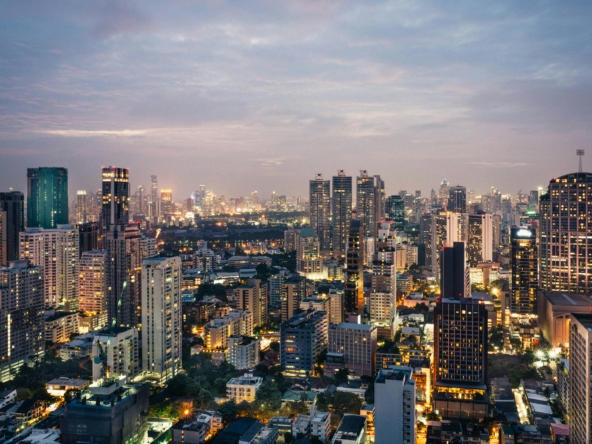In today’s interconnected business landscape, choosing the correct location for your regional headquarters can make or break your expansion strategy. While numerous Asian cities compete for this coveted status, Singapore continues to emerge as the clear winner, attracting multinational corporations at an unprecedented rate.
Recent data reveals a compelling story: Singapore hosted regional headquarters for 4,200 multinational firms in 2023, extending its lead and dwarfing the 1,336 found in Hong Kong. This isn’t just a numbers game; it indicates Singapore’s unique value proposition that keeps global giants like Microsoft, Google, Rolls-Royce, and General Motors anchored in the region.
But what exactly makes Singapore so irresistible to international businesses? Let’s explore the key factors that solidify its position as Asia’s premier business hub.
Strategic gateway to the world’s most dynamic market
Singapore’s positioning as the gateway to ASEAN isn’t just geographical luck; it’s strategic brilliance. The ASEAN Investment Report 2024 pegs the region’s FDI rate of return at 7.7%, above the global average of 6.9%, and forecasts both capital inflows and GDP growth to outpace China’s in the coming years.
From Singapore, you can reach any significant ASEAN capital within seven hours. The country’s Changi Airport connects to over 130 cities worldwide, while its port handles massive cargo volumes, making it a logistics powerhouse.
The upcoming Johor-Singapore Special Economic Zone (JS-SEZ) adds another dimension to this advantage. This collaboration between Singapore and Malaysia will provide businesses with access to Singapore’s world-class infrastructure while leveraging Malaysia’s competitive cost structures.
Unmatched business environment and regulatory excellence
Setting up a business in Singapore is refreshingly straightforward. Singapore has ranked first globally in the Economist Intelligence Unit’s (EIU) business environment rankings for the last 15 years. Your company incorporation can be completed within two days through the streamlined BizFile+ system.
This efficiency isn’t accidental. Singapore has systematically eliminated bureaucratic hurdles while maintaining rigorous standards. When disputes arise, the Singapore International Arbitration Centre (SIAC) offers world-class resolution services that many global companies trust over their home jurisdictions.
Singapore was ranked number one in the world in the Heritage Foundation’s Index of Economic Freedom in 2023 for the third year in a row, reflecting its commitment to free-market principles and minimal government interference in business operations.
Tax optimisation that works
Singapore’s tax regime is not just competitive; it’s strategically designed to maximise your regional profitability. Singapore imposes corporate income tax (CIT) at a flat rate of 17% for both foreign and domestic companies, the lowest among ASEAN member states.
But the real magic lies in the details. Singapore operates a territorial tax system, meaning foreign-sourced income that has been taxed at least 15% in the source country faces no additional taxation when remitted to Singapore. There’s no capital gains tax, and dividends are tax-free.
The country’s extensive network of double taxation agreements spans nearly 100 countries, providing sophisticated tax planning opportunities. The EDB’s International Headquarters (IHQ) Award provides concessionary tax rates of up to 15% if you’re setting up your regional or international headquarters in Singapore.
For businesses serious about regional expansion, Singapore offers the Double Tax Deduction for internationalisation, allowing up to 200% tax deduction on qualifying international expansion expenses.
World class infrastructure meets digital innovation
Singapore doesn’t just talk about being a Smart Nation; it delivers on the promise. The country has achieved nationwide fifth generation (5G) standalone (SA) coverage and was among the first to do so. This digital infrastructure advantage becomes crucial when managing regional operations that depend on real-time data and seamless connectivity.
The nation’s commitment to innovation is shown in its Digital Economy Agreements (DEAs) with various countries. These agreements establish rules for cross-border data flow, digital payments, and AI applications, positioning Singapore as both a testing ground for emerging technologies and a launch pad for digital services across the region.
Intellectual property protection that matters
In an economy increasingly driven by intangible assets, Singapore’s IP protection regime stands out. Singapore has one of the strongest protection regimes in Asia, backed by surveys such as the International Property Rights Index (IPRI) 2024, which ranked Singapore second out of 125 jurisdictions.
The Singapore IP Strategy (SIPS) 2030 represents a coordinated approach to capturing the global intangible assets market, valued at US$65 trillion. For businesses whose competitive advantage depends on proprietary technology, processes, or brands, Singapore offers both protection and commercialisation support.
The human capital advantage
Singapore’s workforce brings a unique combination of skills that’s hard to replicate elsewhere. The government’s proactive approach to workforce development is shown in programs like the Skills Future Enterprise Credit (SFEC), which supports companies in their workforce transformation efforts.
The competitive reality check
While some recent reports suggest multinational corporations are exploring alternatives to reduce costs, the data tells a different story. Singapore continues to outshine its rival, with a remarkable 4,200 multinational firms choosing the city-state in the last year, demonstrating that businesses prioritise value over mere cost savings.
Companies understand that the “Singapore premium” delivers tangible returns through operational efficiency, risk mitigation, and market access that cheaper alternatives simply cannot match.
Future-proofing your regional strategy
Singapore’s appeal isn’t just about current advantages; it’s about future readiness. The country consistently invests in maintaining its competitive edge, whether through infrastructure upgrades, regulatory improvements, or strategic partnerships like the JS-SEZ.
More than 80% of Global Fortune 500 companies have established a presence here. For businesses serious about ASEAN expansion, Singapore offers more than just a regional headquarters location; it provides a strategic platform for sustainable growth. The combination of business-friendly regulations, tax optimisation opportunities, world-class infrastructure, and access to dynamic markets creates a compelling value proposition that continues to attract multinational corporations.
The question isn’t whether Singapore can serve as your regional hub, but whether you can afford to be anywhere else. In a region where agility and operational resilience determine competitive advantage, Singapore provides the foundation for not just surviving but thriving in one of the world’s most promising markets.
As businesses navigate an increasingly complex global landscape, Singapore’s proven track record, future-ready infrastructure, and strategic advantages make it the clear choice for companies looking to establish or expand their regional presence in Asia’s most dynamic economic region.



